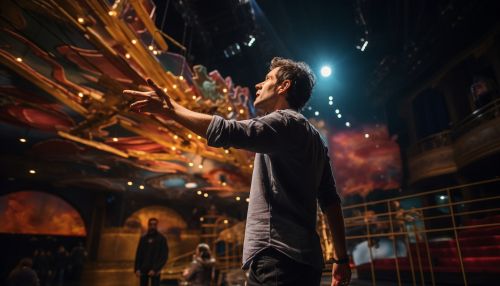The Role of the Director in Theatre
Role and Responsibilities
The director in theatre is a pivotal figure, responsible for overseeing the creative and artistic vision of a production. Their role encompasses a wide range of duties, from interpreting the script and guiding the actors' performances, to coordinating with the technical team and ensuring the overall coherence of the production.


The director's primary responsibility is to interpret the play or script and translate it into a live performance. This involves a deep understanding of the text, its themes, characters, and the playwright's intent. The director must then communicate this interpretation to the actors and the rest of the production team.
Pre-production
In the pre-production phase, the director is involved in the selection of the play, casting, and the overall design concept of the production. They work closely with the playwright, producer, and the design team, which may include the set, costume, lighting, and sound designers.
Rehearsals
During rehearsals, the director works with the actors to shape their performances, guiding them in understanding their characters, the relationships between characters, and the overall arc of the story. They also work with the designers to integrate the various design elements into the production.
Technical Rehearsals
In the technical rehearsals, the director coordinates with the technical team to ensure that all elements of the production - lights, sound, set changes - are executed smoothly and in sync with the actors' performances.
Performance and Post-production
Once the production opens, the director's role shifts to that of an observer, watching the performances and giving notes to the actors and the production team. In the post-production phase, the director may be involved in evaluating the success of the production and planning for future productions.
Styles and Techniques
There are various styles and techniques that a director may employ, depending on the nature of the play and their personal artistic vision. These may include realism, expressionism, epic theatre, theatre of the absurd, and postmodern theatre, among others.
Influence and Impact
The director's vision significantly influences the final outcome of a theatre production. They have the power to shape the audience's experience and interpretation of the play, making the role of the director crucial in the world of theatre.
